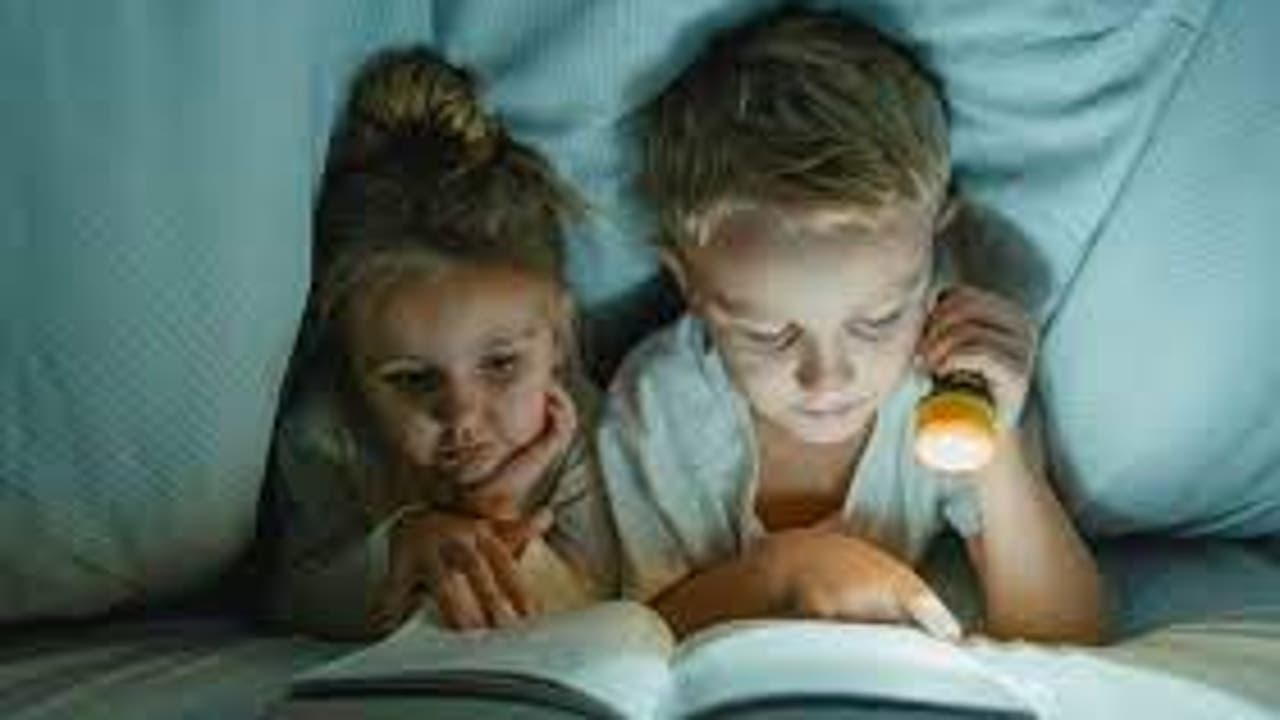Summer is the perfect time to introduce kids to reading for fun. By having more free time and not having to read textbooks or study, books are a more wholesome and useful entertainment ally than screens can offer. But that’s not always easy, especially if they show no interest or, as adults, we don’t set the example by spending time reading.
Despite the fact that screens have invaded our lives in an almost exclusive way, reading habits among children and young people in Spain are much better than those of adults (a third never read). According to the Ministry of Culture’s barometer, 84% of children between the ages of 6 and 9 read outside of textbooks and 77.5% of those aged between 10 and 14 read in their spare time. However, since the age of 15 there has been a decline. The reasons are varied, but it seems that the more reading and writing reviews are required in their academic life, the less interest they have in continuing to do so in their spare time.
However, science has shown that adolescence is the time when the fruits of good childhood reading habits are reaped. According to a study of more than 10,000 young adolescents in the United States, published in the journal Psychological Medicine, Children who start reading for pleasure at an early age have better brain structure, which benefits their mental health and cognitive abilities as they reach their teens.
Scientists from the Universities of Cambridge and Warwick (UK) and Fudan University (China) wanted to find out whether reading impacts cognitive development and brain health, as well as measure how many hours a week it takes to read. get used to it and get the benefits.
To do this, they conducted various tests, such as clinical interviews, cognitive tests, mental and behavioral assessments and brain scans, and compared data on young people who started reading for pleasure at a relatively early age (between the ages of 2). and 9) with those who started doing it later or never did.
Of the 10,243 participants studied, nearly half (48%) had little experience of reading for pleasure or did not start reading until childhood. The remaining half have spent between three and ten years reading for pleasure. The team found a strong association between reading for pleasure at an early age and positive performance in adolescence on cognitive tests that measure factors such as verbal learning, memory and speech development, and school academic performance. These children also have better mental health and show fewer signs of stress and depression, as well as better attention spans and fewer behavioral problems, such as aggression and rule breaking. In addition, they spent less time in front of screens — whether watching TV or using smartphones or tablets — during the week and on weekends as teenagers, and tended to sleep longer.
They also found that the optimal amount of reading for enjoyment in childhood is about 12 hours per week. Beyond this, there doesn’t seem to be any added benefit.
Reading improvements in brain structure
When researchers analyzed brain scans of groups of adolescents, they found that those participants who began reading for pleasure at an early age showed greater total brain area and volume, mostly in areas that play an important role in cognitive function. Professor Barbara Sahakian, from the Department of Psychiatry at the University of Cambridge, emphasizes that “reading is not just a pleasant experience: It is widely accepted that it inspires thought and creativity, increases empathy and reduces stress.”
“But other than that,” he added, “we have found significant evidence that he did Associated with important developmental factors in children, improving their cognition, mental health and brain structure, which is the foundation for future learning and well-being.
“We encourage parents to do everything they can to spark a love of reading in their children from an early age,” said Professor Jianfeng Feng, from Fudan University and Warwick University. “If done well, not only will it not only bring them pleasure and enjoyment, but will also contribute to their development and encourage long-term reading habits, which can also
useful in adult life.

“Internet trailblazer. Troublemaker. Passionate alcohol lover. Beer advocate. Zombie ninja.”







